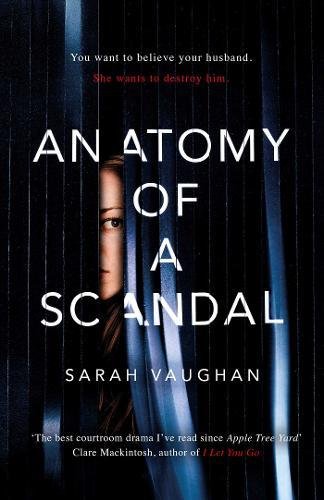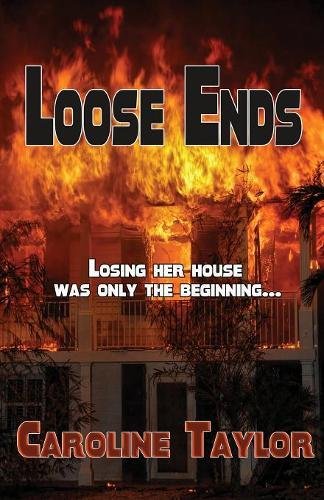 M. Jonathan Lee mesmerizingly develops each story with baby steps that allow the release of tension, which is not necessarily predicated on a joyous turn of events. Sometimes tragedy must happen for this change of perspective, of new awareness and conscience. Mother Nature carries us along in its snowy arms, but it’s human love, wrapping around our fingers, that happily delivers us.
M. Jonathan Lee mesmerizingly develops each story with baby steps that allow the release of tension, which is not necessarily predicated on a joyous turn of events. Sometimes tragedy must happen for this change of perspective, of new awareness and conscience. Mother Nature carries us along in its snowy arms, but it’s human love, wrapping around our fingers, that happily delivers us.
Tag: fiction
A review of The Bookworm by Mitch Silver
 I would have to say that Silver’s a romantic as well. In his Author’s Notes he comments that he named his Russian beauty after the blond beauty in the movie Doctor Zhivago. He even has a romantic triangle ending in tragedy, but not as you’d expect. One night I couldn’t sleep for wondering how the book would play out and I named all the characters, using most of the alphabet. There’s four ‘n’ names, though! Will you enjoy The Bookworm? I think so. Very much.
I would have to say that Silver’s a romantic as well. In his Author’s Notes he comments that he named his Russian beauty after the blond beauty in the movie Doctor Zhivago. He even has a romantic triangle ending in tragedy, but not as you’d expect. One night I couldn’t sleep for wondering how the book would play out and I named all the characters, using most of the alphabet. There’s four ‘n’ names, though! Will you enjoy The Bookworm? I think so. Very much.
A review of Anatomy of a Scandal by Sarah Vaughan
 Anatomy of a Scandal reads like a story ripped from today’s headlines: a prominent man is accused of sexual harassment. I couldn’t put the book down—I actually felt edgy when I wasn’t reading it, almost like the story was an addiction.
Anatomy of a Scandal reads like a story ripped from today’s headlines: a prominent man is accused of sexual harassment. I couldn’t put the book down—I actually felt edgy when I wasn’t reading it, almost like the story was an addiction.
A review of The Arab’s Ox by Tony Ardizzone
 Morocco stands for something to each of the characters. In order to decipher this symbol in their lives, they must look inward. They each arrive at a turning point in which Morocco speaks back to them, helps them discover its meaning to them. For Henry, Ahmed becomes his guide not only to various Moroccan sites, but to his own mortality. Rosemary, an American ex-patriate, a grizzled but classy woman, sees her younger self in Sarah and tries to steer her toward a different future.
Morocco stands for something to each of the characters. In order to decipher this symbol in their lives, they must look inward. They each arrive at a turning point in which Morocco speaks back to them, helps them discover its meaning to them. For Henry, Ahmed becomes his guide not only to various Moroccan sites, but to his own mortality. Rosemary, an American ex-patriate, a grizzled but classy woman, sees her younger self in Sarah and tries to steer her toward a different future.
A review of The Lucky Galah by Tracy Sorensen
It’s hard to believe that The Lucky Galah is a debut. It’s an ambitious, complex novel full of varying points of view, voices, historical narration, a variety of themes, and all sorts of subtle references, including many literary links and allusions, but the writing is so assured and smooth that these complexities become rich undercurrents that seamlessly integrate into the story rather than digressions.
A review of Incredible Floridas by Stephen Orr
 Times and places appear to so often remain in a form of flux throughout this novel, and to help me keep track I began underlining the locations with a yellow highlighter. As for those past decades chosen by Orr, I only have to close my eyes and it all comes back to me as if it were yesterday. Every neighbourhood seemed to have a problem son like Orr’s Hal: the one who started all the fires, or sometimes shot at you with his air rifle, and all too often kicked a neighbour’s garbage tin up and down the street.
Times and places appear to so often remain in a form of flux throughout this novel, and to help me keep track I began underlining the locations with a yellow highlighter. As for those past decades chosen by Orr, I only have to close my eyes and it all comes back to me as if it were yesterday. Every neighbourhood seemed to have a problem son like Orr’s Hal: the one who started all the fires, or sometimes shot at you with his air rifle, and all too often kicked a neighbour’s garbage tin up and down the street.
A review of Good Neighbors by Joanne Serling
 The seven adults in the circle are the most successful members of their families of origin and have more in common with each other than with their relatives. All remember their parents as “hopelessly authoritarian, yet clueless and also uninterested in parenting.” As it turns out, however, one family’s failure at parenting shakes the group to its foundations.
The seven adults in the circle are the most successful members of their families of origin and have more in common with each other than with their relatives. All remember their parents as “hopelessly authoritarian, yet clueless and also uninterested in parenting.” As it turns out, however, one family’s failure at parenting shakes the group to its foundations.
A review of She’s Not There by Joy Fielding
 This is a professional writer at her best and she is so good at her craft. Joy Fielding slips in many clever additions through her odds and evens chapters that skilfully gel everything together. She also maintains tautness within the dialogue that infects the reader’s curiosity and stays there all the way to an amazing and unexpected conclusion.
This is a professional writer at her best and she is so good at her craft. Joy Fielding slips in many clever additions through her odds and evens chapters that skilfully gel everything together. She also maintains tautness within the dialogue that infects the reader’s curiosity and stays there all the way to an amazing and unexpected conclusion.
A review of Loose Ends by Caroline Taylor
 You can call Loose Ends social commentary, a mystery to be solved, a psychological thriller, an escape novel for the novel, and even a comedy of errors. While it’s a serious situation both women are in now and were in when they were growing up temporarily in El Salvador, there’s a comedic lining.
You can call Loose Ends social commentary, a mystery to be solved, a psychological thriller, an escape novel for the novel, and even a comedy of errors. While it’s a serious situation both women are in now and were in when they were growing up temporarily in El Salvador, there’s a comedic lining.
A review of The Measure of the Moon by Lisa Preston
 Preston crafts a parallel mystery that keeps the reader turning pages. What’s the link between these two characters? They appear to have nothing in common and are leading completely unrelated lifestyles. Gillian is an insulated city girl focused on her career and making a half-hearted attempt to save her crumbling marriage; Greer’s family is urban, outdoorsy, close-knit, and protective of each other.
Preston crafts a parallel mystery that keeps the reader turning pages. What’s the link between these two characters? They appear to have nothing in common and are leading completely unrelated lifestyles. Gillian is an insulated city girl focused on her career and making a half-hearted attempt to save her crumbling marriage; Greer’s family is urban, outdoorsy, close-knit, and protective of each other.